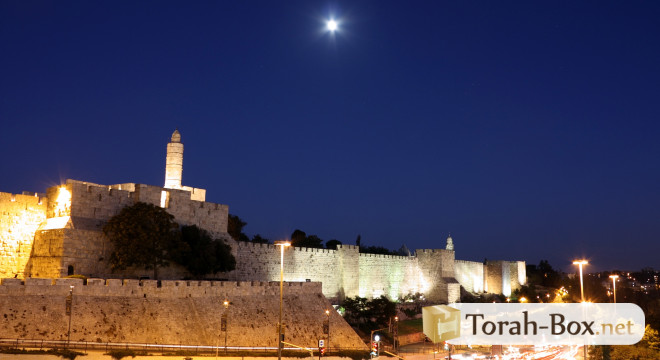
Fast of 10h of Tevet
The Fast of 10th of Tevet and the Atrocities of the Siege of Jerusalem
On the upcoming fast of the 10th day of Tevet, the Torah-Box team brings you back to the historical context of this tragic day for the Jewish people. A day on which the armies of the Babylonian emperor Nebuchadnezzar established a siege around Jerusalem.
The siege of Jerusalem
The prophecies of Jeremiah began to be fulfilled. Toward the ninth year of Tzidkiyahu's reign, Nebuchadnezzar deployed his armies, marching towards Jerusalem with the clear intention of crushing the revolt.
Reaching the city of Ribla, he settled his camp there. However, hesitation settled in, as well as fear and terror that Hashem could have the same fate as that of Sennacherib in store for him. This discouraged him from proceeding forward. He finally decided to delegate the destruction to the chief of his armies Nowzaradan, whom he ordered to ravage Jerusalem. He provided three hundred thousand donkeys loaded with iron bars to break the gates of Jerusalem.
On the 10th of Tevet, Nowzaradan besieged Jerusalem, impeding anyone from fleeing or stocking up on supplies or food.
Simultaneously he tried to break down the walls of Jerusalem, but without success. As the destruction of the city was not yet sealed by divine decree, all of Nowzaradan attempts in this direction were fruitless. The immense amount of iron bars provided by Nebuchadnezzar proved ineffective. The bars broke on contact with the doors. The soldiers shot arrows and propelled large stone blocks, but to no avail. It then became clear that divine protection sought to strengthen the people in their faith and bring them to repentance. A multitude of great warriors were found amid the population of Jerusalem. They put up a merciless fight against the Kassdim (Babylonians), who administered large losses.
One of them was Avika son of Givtari, a warrior of superhuman strength.
Indeed, when Nebuchadnezzar's soldiers catapulted enormous blocks of stone beyond the walls, Avika intercepted them and sent them back to the soldiers massacring them in large numbers. When the attacks and the number of arrows multiplied, he then used his feet to retrieve them.
Alas, the weight of his faults sealed his fate unto a tragic death. A strong wind propelled him from the walls, causing a fatal fall.
The atrocities of Siege
Jerusalem was besieged for a year and a half. Gradually, food supplies dwindled and day after day, the pangs of hunger generated increasingly unsustainable suffering. Many people were crushed by the situation and starved to death. When girls met in the alleyways of the city market, they asked one another the following question: "What are you doing here? You've never been seen in the market before! "
The other answered: "Hunger rages cruelly and it is unbearable to me; so, I came to the market hoping to find a morsel of food. "
This kind of scenes became commonplace: women in search of food stood arm in arm. Decrepit and weakened by hunger, they completed their journey by collapsing on pillars before succumbing to death. Seeking their mothers for nourishment, young children, whose mothers could not comfort, collapsed as well, falling on their mothers' corpses.
This atrocious situation is best depicted in the following true story: a mother of three children, whose two elder sons were enlisted in combat, performed an abominable act. To reverse the death sentence on her family and avoid starvation, she cooked her baby in a pot to save the elder sons from imminent death. When they began to eat, the brothers understood they were eating their younger brother.
Terrorized by pain and terror, they jumped off the roof of their home, thus ending their lives. In her grief, the mother shouted: "He who harvests in the fields keeps the plans, so he who harvests his vineyard keeps the vines; but I have nothing left! I was delivered unto the hands of Nebuchadnezzar as a lamb sent to slaughter! "
This is the theme of the verse recited in Lamentations from the Megillah of Eicha: "With their own hands, tender women cooked their children to feed on them" (Lamentations Chap.2, vers.10) .
Torah-Box.net Account
To access the entire Torah-Box.net website, sign up for free in less than a minute.
Weekly Parsha
 Candle Lighting - New York
Candle Lighting - New York
Friday December 26th, 2025 at 16:16 *Shabbat ends at 17:22 *
change my location
* Times given as an indication, check the times of your community










